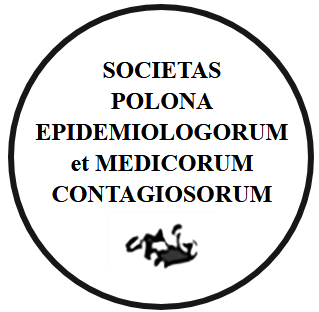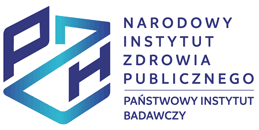ABSTRACT
INTRODUCTION. Since 2005, rubella has been included in the eradication program coordinated by the World Health Organization (WHO). The elimination of rubella in the country is possible provided that it is achieved by min. 95% immunization status and monitoring of the epidemiological situation, including the recording all suspicions of rubella and conducting laboratory diagnostics in the WHO Reference Laboratory.
AIM OF THE STUDY. The aim of the study is to assess the epidemiological situation of rubella in Poland in 2020, taking into account the assessment of rubella vaccination status and the degree of implementation of the WHO rubella elimination program in Poland.
MATERIAL AND METHODS. Assessment of the epidemiological situation of rubella in Poland based on aggregated reports of suspected rubella cases sent to the National Institute of Public Health NIH – National Research Institute by the Voivodeship Sanitary and Epidemiological Stations, data from the bulletin “Infectious diseases and poisoning in Poland in 2020” and data from the Epibaza system and the bulletin “Preventive vaccination in Poland in 2020”.
RESULTS. In 2020, 98 cases of rubella were registered, 187 cases less than in 2019 (285 cases). There was also a decrease in the incidence to 0.26 per 100,000, compared to 0.74 per 100,000 in 2019. The highest incidence, iregardless of gender and place of residence, was recorded in the 0-4 age group (2.98 per 100,000). In 2020, no cases of congenital rubella syndrome were reported. In 2020, only one case (1.02%) was classified as a case confirmed in a laboratory test. The remaining 98.98% (97 cases) were diagnosed on the basis of clinical symptoms.
SUMMARY AND CONCLUSIONS. In 2020, in Poland, a decrease in the number of rubella was observed. Rubella was registered in 99% on the basis of a general diagnosis, without the required laboratory confirmation, which means that other rash diseases can be registered as rubella.
STRESZCZENIE
WSTĘP. Od 2005 r. różyczka jest objęta programem eliminacji, koordynowanym przez Światową Organizację Zdrowia (WHO). Eliminacja różyczki w kraju możliwa jest pod warunkiem osiągnięcia min. 95% stanu zaszczepienia populacji oraz monitorowania sytuacji epidemiologicznej, w tym rejestrowania wszystkich podejrzeń różyczki oraz prowadzenia diagnostyki laboratoryjnej w Laboratorium Referencyjnym WHO.
CEL PRACY. Celem pracy jest ocena sytuacji epidemiologicznej różyczki w Polsce w 2020 r. z uwzględnieniem oceny stanu zaszczepienia przeciw różyczce oraz stopnia realizacji programu WHO eliminacji różyczki w Polsce.
MATERIAŁ I METODY. Ocenę sytuacji epidemiologicznej różyczki w Polsce przeprowadzono na podstawie zagregowanych zgłoszeń podejrzeń zachorowań na różyczkę nadesłanych do NIZP PZH – PIB przez Wojewódzkie Stacje Sanitarno-Epidemiologiczne, danych z biuletynu ,,Choroby zakaźne i zatrucia w Polsce w 2020 roku” i danych z systemu Epibaza oraz biuletynu ,,Szczepienia ochronne w Polsce w 2020 roku”.
WYNIKI. W 2020 r. zarejestrowano 98 przypadków różyczki, o 187 przypadków mniej niż w 2019 r. (285 przypadków). Odnotowano również spadek zapadalności do 0,26 na 100 tys., w porównaniu do 0,74 na 100 tys. w 2019 r. Najwyższą zapadalność, niezależnie od płci i środowiska zamieszkania, odnotowano w grupie wieku 0-4 lata (2,98 na 100 tys.). W 2020 r. nie zanotowano przypadków zespołu różyczki wrodzonej. W 2020 r. tylko jedno (1,02%) zachorowanie zostało zakwalifikowane jako przypadek potwierdzony w badaniu laboratoryjnym.
Pozostałe 98,98% (97 zachorowań) rozpoznano na podstawie objawów klinicznych.
PODSUMOWANIE I WNIOSKI. W 2020 r. w Polsce odnotowano spadek liczby zachorowań na różyczkę. Różyczka była rejestrowana w 99% na podstawie rozpoznań klinicznych, bez wymaganego potwierdzenia laboratoryjnego, co oznacza możliwość zarejestrowania innych chorób wysypkowych jako różyczki.
Możesz zmienić ustawienia cookies w swojej przeglądarce. Ograniczenie stosowania plików cookies w konfiguracji przeglądarki może wpłynąć na niektóre funkcjonalności dostępne na stronie.





